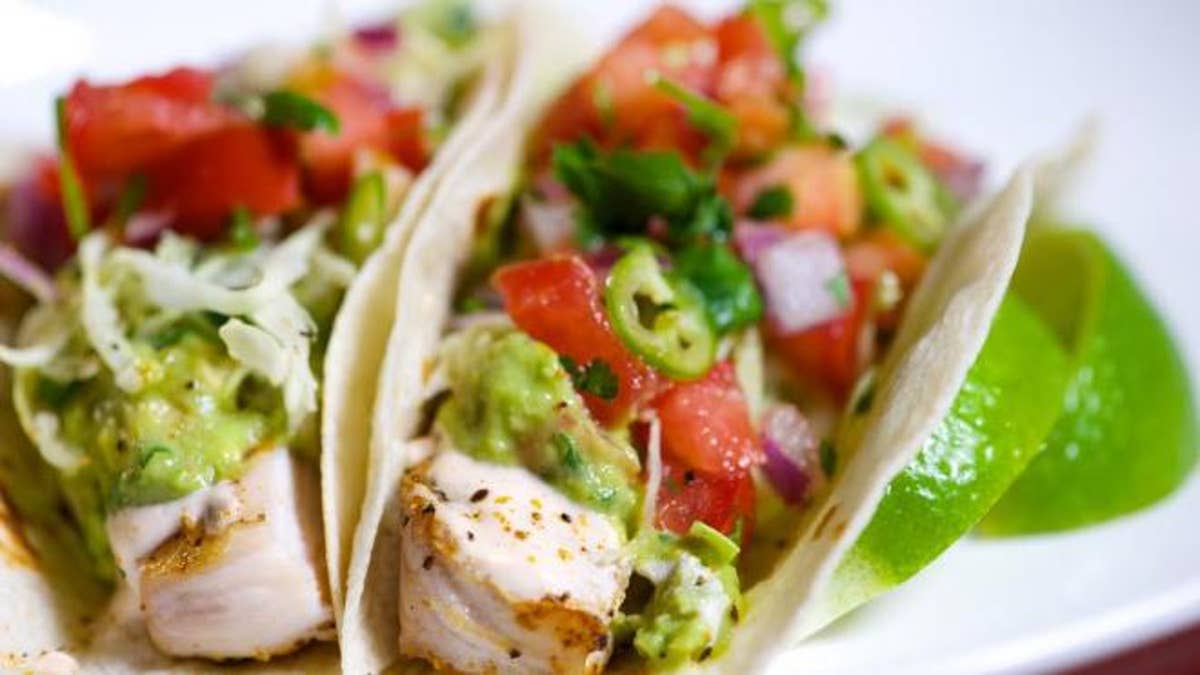
You don’t have to be Mexican to enjoy the fiesta of flavors that go along with Cinco de Mayo. Although Americanized Mexican food can be a diet disaster – think fried tortilla chips, fast food burritos, and let’s not forget frozen Margaritas -- many traditional Mexican staples are good for your health, and your waistline. Next time you’re going Mexican, try these five healthy and flavorful Mexican staples.
Grilled Corn
Sweet, savory, spicy, and succulent – piping hot corn on the cob is a Mexican staple. One ear of sweet corn has the same number of calories as an apple, and it offers numerous nutrient benefits. Sweet corn is a good source of fiber and an excellent source two phytonutrients (lutein and zeaxanthin) that promote eye health. Plus, corn has a high antioxidant activity that increases when the corn is cooked. Antioxidants help protect the body from chronic diseases likes heart disease and cancer. However, what you put on the corn can make or break your healthy intensions. While grilled Mexican corn is often smothered in mayonnaise and cheese, you can easily lighten it up by focusing more on the fresh seasonings. Grill corn and season with light butter mixed with chopped cilantro, chile powder, and fresh lime juice. It’s not only delicious, you’ll really taste the flavor of the sweet grilled corn caramelized to perfection.
Fresh Vegetables
In addition to corn, tomatoes, zucchini, bell peppers, chilies and onions are some the most popular vegetables used in Mexican cuisine. Not only are they low in calories (1 medium tomato has just 22 calories), they are loaded with good nutrition. Packed with immune boosting vitamin C, these vegetables are also rich in antioxidants and flavonoids that promote heart health, reduce inflammation, and may help reduce the risk of cancer. These vegetables are often grilled, which gives their natural flavor a kick. Whatever Mexican dish you are craving, load up with extra vegetables.
Avocados
From tacos, to sandwiches, to salads – avocado is the produce darling that will brighten up any dish. Although avocados are high in fat, it’s monounsaturated fat, which when eaten in moderation (1/5 of a medium avocado is a serving size), can help lower bad “LDL” cholesterol. Avocados offer nearly 20 vitamins, minerals, and phytonutrients in every serving, including potassium (to help control blood pressure), lutein (for eye health), and B vitamins (to help fight off disease and infection). The healthy fats and fiber they contain – along with their creamy and satisfying texture -- will help you feel fuller, longer. In one study, people who added one-half of a fresh avocado to their lunch felt more satisfied, and had less desire to eat three hours later. To make a quick and healthy guacamole, simply mix ripe avocados with lime juice, chopped vegetables, cilantro, garlic and seasonings. A ¼-cup serving of guacamole contains about 100 calories.
Beans
The Mexican staple, beans, offer plant-based protein that’s low in fat, high in protein, and rich in fiber for staying power. Refried beans can be made healthy, but they are often prepared with lard and cheese blends in Mexican restaurants, so you’re better off going for the black beans or pinto beans. Research shows just a ½ cup of beans daily might lower cholesterol. One reason for this is that the soluble fiber in beans helps bind cholesterol and stops it from being absorbed in the gut. For a healthy ticker and thinner waistline, swap beans for meat in many of your favorite Mexican dishes. If you don’t want to cut meat out entirely, cut the amount of meat in half and add beans. Not only will you improve the nutritional value of your meal, you’ll cut down on your food costs as well.
Cilantro
One of the most wonderful things about traditional Mexican cuisine is the use of fresh herbs, like cilantro, with health-promoting properties. These deep-green leaves are rich in antioxidants (beta-carotene, lutein, and zeaxantin). In fact, because of its high antioxidant content, the oil in cilantro added to foods has been shown to inhibit oxidation and help prevent spoilage. Research shows that increasing consumption of plant foods like cilantro may help decrease the risk of diabetes and heart disease, promote healthy skin and hair, and have an antibacterial effect. Not only is cilantro a tasty and eye-catching garnish, it’s a wonderful flavor enhancer to help cut down on fat in dressings, sauces, and soups.




















